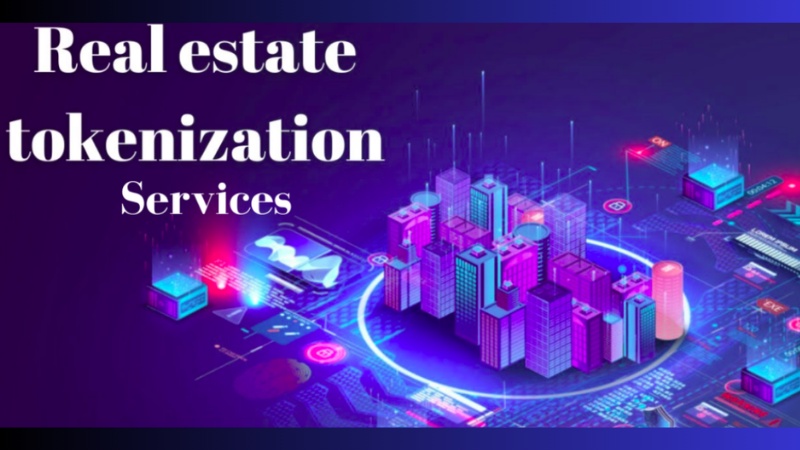In recent years, the world of real estate investment has seen a remarkable transformation, thanks to the advent of blockchain technology and the rise of real estate tokenization. This innovative approach to property investment has opened up new avenues for investors and property owners alike. In this article, we will delve into the world of real estate tokenization development and explore how it is revolutionizing property investment.
Understanding Real Estate Tokenization
Real estate tokenization is the process of converting ownership rights to a property into digital tokens on a blockchain. Each token represents a share of the property, and these tokens can be bought, sold, or traded by investors. This approach offers several advantages that are reshaping the real estate industry.
Increased Accessibility
Traditionally, investing in real estate required substantial capital, making it inaccessible to many. Real estate tokenization breaks down these barriers by allowing fractional ownership. Investors can purchase tokens for a fraction of the property's value, opening up the market to a wider range of participants.
Liquidity
One of the significant advantages of real estate tokenization is the increased liquidity it offers. Traditional real estate investments often lack liquidity, with properties taking months or even years to sell. With tokenization, investors can easily trade their tokens on secondary markets, providing a level of liquidity that was previously unheard of in the real estate market.
Transparency and Security
Blockchain technology ensures transparency and security throughout the tokenization process. Property ownership and transaction data are recorded on an immutable ledger, reducing the risk of fraud and ensuring that ownership records are accurate and up to date.
Global Investment Opportunities
Real estate tokenization also opens the door to global investment opportunities. Investors can participate in property markets around the world without the need for complex legal processes or intermediaries. This global reach diversifies investment portfolios and reduces geographical constraints.
Real Estate Tokenization Development Process
Now that we've explored the benefits of real estate tokenization, let's dive into the development process.
-
Property Valuation: The first step in real estate tokenization is to determine the value of the property. This valuation serves as the basis for determining the number of tokens to be created.
-
Legal Compliance: Compliance with relevant regulations is crucial. Developers need to ensure that the tokenization process complies with local real estate and securities laws.
-
Token Creation: Tokens representing ownership shares are created on a blockchain. Smart contracts are used to manage token issuance and ownership.
-
Investor Onboarding: An investor portal is created for onboarding investors. This portal allows investors to purchase tokens and manage their investments.
-
Secondary Market Integration: To enhance liquidity, developers often integrate the tokens with secondary market platforms, where investors can trade their tokens.
-
Asset Management: Ongoing asset management includes rent collection, property maintenance, and distribution of profits to token holders.
Real-World Applications
Real estate tokenization has found applications in various real estate sectors:
-
Residential Properties: Individual homeowners can tokenize their properties and sell ownership shares to multiple investors.
-
Commercial Real Estate: Commercial properties such as office buildings, shopping malls, and hotels are often tokenized to attract a diverse range of investors.
-
Real Estate Investment Trusts (REITs): Traditional REITs are embracing tokenization to offer enhanced liquidity to their investors.
-
Fractional Ownership: High-value properties like luxury resorts or vacation homes can be tokenized, allowing investors to purchase fractions of these assets.
Challenges and Considerations
While real estate tokenization offers numerous benefits, it is not without its challenges and considerations. Developers must address issues related to regulatory compliance, security, and the potential for market volatility.
Regulatory Compliance: Different regions have varying regulations regarding real estate and securities. Developers must navigate these legal frameworks to ensure compliance.
Security: The security of blockchain networks and smart contracts is paramount. Security breaches can result in significant financial losses and damage to the reputation of tokenized assets.
Market Volatility: Like any investment, the value of real estate tokens can fluctuate. Investors should be aware of the potential for market volatility.
Conclusion
Real estate tokenization development is reshaping the way people invest in property. Its benefits, including increased accessibility, liquidity, transparency, and global opportunities, are making property investment more inclusive and dynamic.
As technology continues to advance and regulations evolve, the real estate tokenization landscape will likely see further growth and refinement. Investors and property owners should carefully consider the opportunities and challenges presented by this transformative approach to real estate investment.
In the coming years, real estate tokenization development will continue to revolutionize property investment, offering a more accessible and efficient way to participate in the lucrative world of real estate.


No comments yet